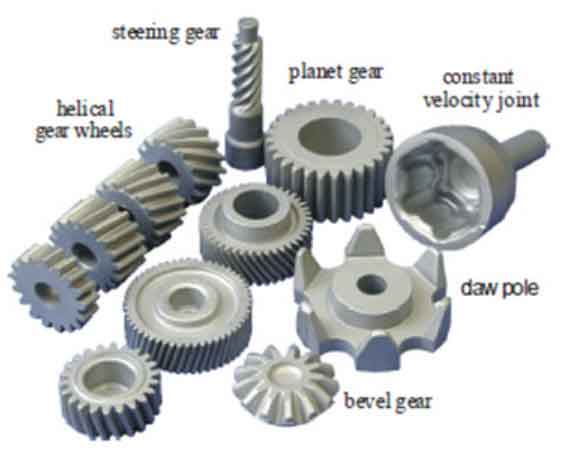Precision forging has become an essential manufacturing technique in the aerospace and defense industries, where high-performance components are required to meet stringent requirements for strength, reliability, and weight reduction. The unique capabilities of precision forging make it an ideal choice for producing critical parts that must withstand extreme conditions and demanding applications.

- Structural Components: Precision forging is widely used in the production of structural components for aerospace and defense applications. These components include turbine blades, rotor hubs, landing gear parts, wing fittings, and structural connectors. By utilizing precision forging, these parts can be manufactured with high strength, excellent fatigue resistance, and precise dimensional accuracy, ensuring reliable performance under extreme loads and conditions.
- Jet Engine Components: Jet engines require components that can withstand high temperatures, corrosion, and heavy mechanical stresses. Precision forging is used to produce critical engine parts such as compressor blades, turbine disks, and shafts. The controlled grain flow achieved through precision forging enhances the strength and fatigue resistance of these parts, ensuring optimal engine performance and safety.
- Missile and Munitions: Precision forging plays a crucial role in the production of missile and munitions components. Missile bodies, warhead casings, and fins are commonly manufactured using precision forging techniques. The ability to create complex geometries and optimize material properties allows for the production of lightweight yet strong components that can withstand high-speed flight, extreme temperatures, and impact forces.
- Defense Vehicle Components: Precision forging is employed in the manufacturing of defense vehicle components such as chassis, suspension parts, and drivetrain components. These parts require high strength, durability, and resistance to shocks and vibrations. Precision forging ensures the production of robust components with exceptional mechanical properties, contributing to the overall performance and reliability of defense vehicles.
- Aircraft Landing Gear: Landing gear components, including landing gear beams, struts, and brackets, are subjected to substantial loads during landing and takeoff. Precision forging provides the necessary strength, fatigue resistance, and dimensional accuracy required for these critical components. The near-net shape capability of precision forging minimizes material waste and reduces the need for additional machining operations.
- Aerospace Fasteners: Precision forging is utilized in the production of aerospace fasteners such as bolts, nuts, and screws. These fasteners require high strength, reliability, and precise threading. Precision forging ensures that the fasteners have excellent mechanical properties, including high tensile strength and resistance to vibration, ensuring secure and reliable connections in aerospace applications.
The use of precision forging in aerospace and defense offers significant benefits:
- Weight Reduction: Precision forging allows for the production of lightweight components without compromising strength and integrity. This weight reduction contributes to improved fuel efficiency, increased payload capacity, and enhanced overall performance.
- Cost Efficiency: Precision forging minimizes material waste, reduces the need for secondary operations, and streamlines the manufacturing process. This leads to cost savings in terms of raw material usage, machining, and assembly.
- Performance and Reliability: The controlled grain flow achieved through precision forging results in components with enhanced mechanical properties, including superior strength, fatigue resistance, and dimensional accuracy. This ensures reliable performance and long service life in high-stress applications.
- Design Flexibility: Precision forging enables the production of complex geometries, allowing engineers to optimize component designs for performance, weight reduction, and integration with other systems.
In conclusion, precision forging has revolutionized the manufacturing of aerospace and defense components by meeting the demanding requirements of high-performance applications. Its ability to produce structurally sound, lightweight, and precise components has made it an indispensable process in the aerospace and defense industries, contributing to improved performance, reliability, and safety.
